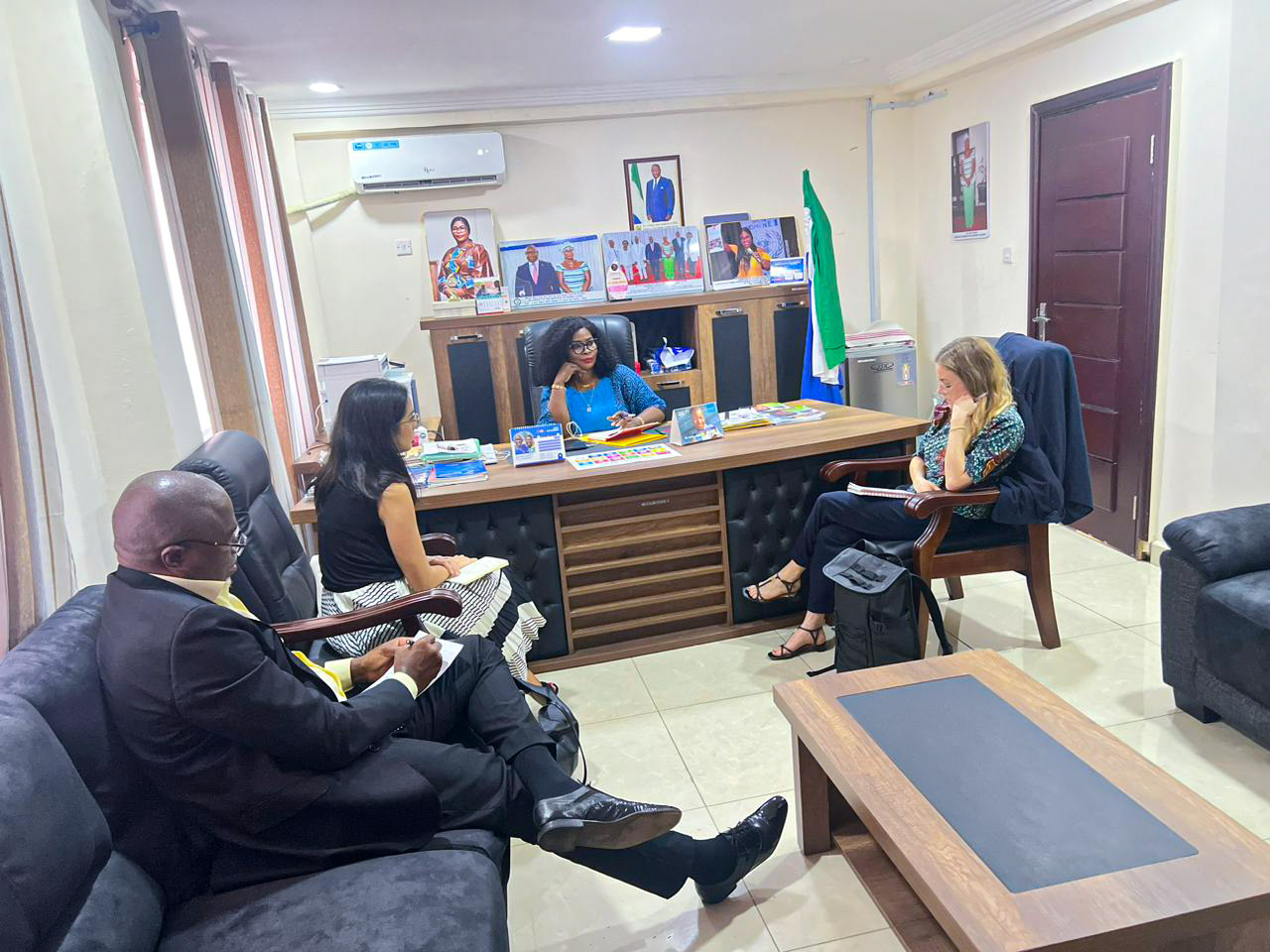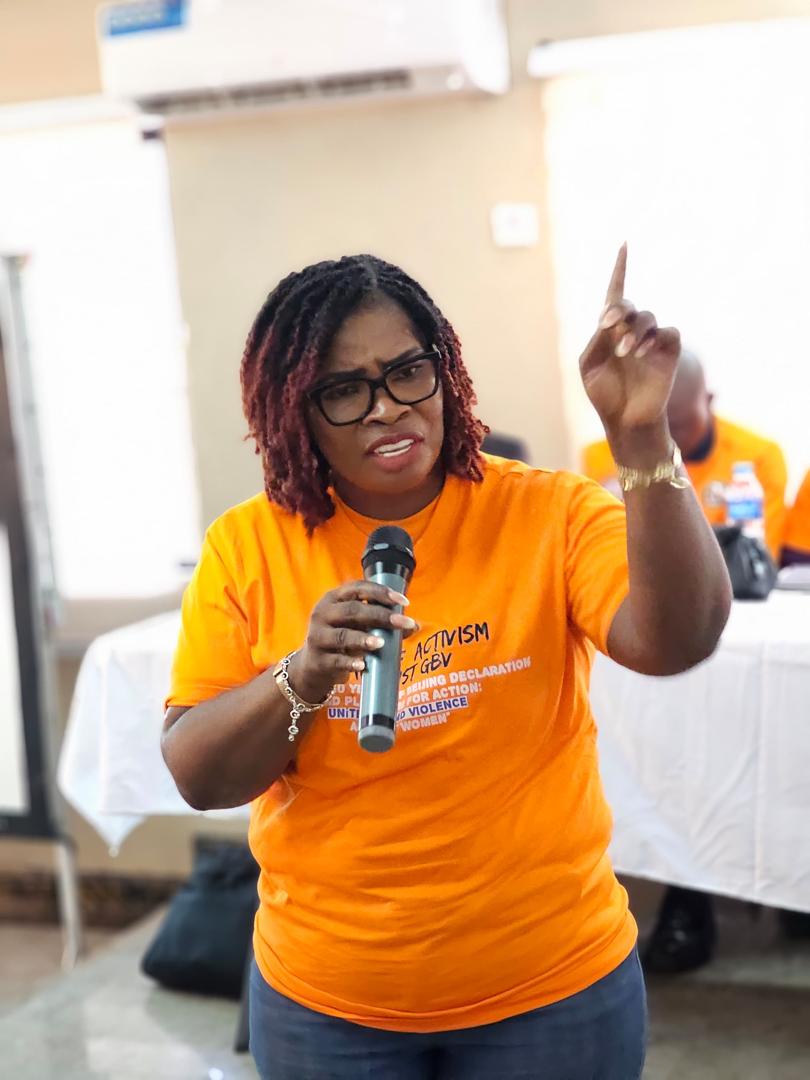Dr. Isata Mahoi, the Minister of Gender and Children’s Affairs, stands as a formidable force in the struggle for gender equality and the eradication of gender-based violence (GBV) in Sierra Leone. Her tenure has been marked by a progressive reformation of policies and laws, a relentless drive to elevate the status of women and children, and a firm commitment to ensuring that gender parity becomes a lived reality. Yet, her journey has not been without its challenges, as societal, institutional, and financial barriers continue to impede full progress. Despite these hurdles, Dr. Mahoi’s achievements reflect a visionary leadership, focused on breaking barriers and transforming the lives of women and children across the nation.
One of the most remarkable successes of Dr. Mahoi’s tenure has been her focus on legislative reforms designed to advance gender equality and protect the rights of women and children. Under her leadership, the Gender Equality and Women’s Empowerment (GEWE) Act 2022 was passed, a landmark law that addressed long-standing gender imbalances in political, social, and economic spheres. This law has significantly increased women’s representation in leadership positions, ensuring their voices are heard in decision-making processes at both elective and appointive levels. As Dr. Mahoi stated, this law is pivotal to sustainable development in Sierra Leone, as women bring innovative solutions to the table when fully empowered to participate in governance.
In addition, the Prohibition of Child Marriage Bill 2024 was enacted under her guidance, outlawing child marriage—a practice that had stifled the potential of countless young girls. The Ministry also spearheaded the review of the Child Rights Act 2007, replacing it with the Child Rights Bill 2024, further strengthening the child protection framework in the country. These reforms form the bedrock of Dr. Mahoi’s mission to protect and empower vulnerable populations, particularly young girls, who had previously been marginalized by harmful traditional practices.
Another defining feature of Dr. Mahoi’s tenure has been her commitment to eradicating gender-based violence (GBV). Through the Spotlight Initiative, a collaborative effort with international partners such as the European Union and the United Nations, the Ministry has developed a comprehensive plan to address GBV. This initiative focuses on strengthening legislative frameworks, prevention strategies, and response services, while also empowering women’s movements. A notable success has been the establishment of One Stop Centers in seven districts, providing essential support services to victims of GBV, as well as the launch of the 116 Hotline for reporting cases of sexual violence. These initiatives have been critical in reducing the culture of impunity surrounding GBV and providing victims with accessible avenues for justice.
The Hands Off Our Girls campaign, launched by the First Lady in 2018 and supported by Dr. Mahoi’s Ministry, has been another vital tool in raising awareness and combating sexual violence against girls. This campaign has led to the strengthening of the Sexual Offences Act 2012, which was amended in 2019 following a national emergency declaration on sexual violence by President Bio. These efforts have been instrumental in promoting a nationwide discourse on the need to protect women and girls from violence, shifting the narrative toward accountability and justice.
Dr. Mahoi has also been a passionate advocate for women’s leadership and participation in political and economic decision-making processes. The GEWE Act 2022 has not only increased women’s representation in governance but has also created opportunities for young women to assume leadership roles in Sierra Leone’s political landscape. Dr. Mahoi’s approach recognizes that women’s participation is essential to sustainable development, and she has actively promoted initiatives that empower adolescent girls through education and skill development.

The Global Programme to End Child Marriage (GPECM), in collaboration with international partners such as UNICEF and UNFPA, has reached over 30,000 marginalized girls, providing them with life skills and empowering them to understand their rights. Through community-level interventions, Dr. Mahoi’s Ministry has also engaged with over 20,000 traditional and religious leaders, fostering consensus on the need to end child marriage and protect the rights of girls. These initiatives have not only prevented early marriages but have also paved the way for long-term social and economic empowerment for young women across the country.
Despite these achievements, Dr. Mahoi’s tenure has been fraught with challenges. The Ministry continues to struggle with deep-rooted cultural norms that perpetuate gender inequality, particularly in rural areas where practices such as child marriage and female genital mutilation (FGM) remain prevalent. These harmful practices, ingrained in certain communities, often hinder the implementation of laws meant to protect women and girls.
The financial constraints facing the Ministry further complicate its efforts to implement ambitious programs. While the Ministry has benefited from international support through initiatives like the Spotlight Initiative, it still faces a shortage of sustainable domestic funding. This reliance on donor funding makes it difficult to plan long-term strategies and undermines the Ministry’s ability to scale its programs effectively.
Additionally, insufficient capacity for enforcement remains a significant barrier. Law enforcement agencies, social services, and the judiciary are often under-resourced and lack the necessary training to handle gender-related cases, which hampers the implementation of gender laws. Patriarchal structures also continue to pose resistance to gender reforms, particularly in male-dominated institutions, where there is often reluctance to fully embrace women’s leadership.

Despite these systemic challenges, Dr. Mahoi remains committed to forging a future of inclusivity and gender equality. She has called for greater collaboration between the government, civil society, and international partners to ensure that the Ministry’s agenda moves forward. Dr. Mahoi has also emphasized the need for data-driven approaches to gender policy, particularly in tracking cases of GBV through systems like the Gender-Based Violence Information Management System (GBVIMS+), which has already improved the national capacity for reporting and responding to violence against women and girls.
Looking ahead, Dr. Mahoi’s vision involves integrating gender perspectives into all aspects of government policy. She seeks to ensure that women’s rights remain at the center of Sierra Leone’s development agenda, not just through legislation but also through economic empowerment, education, and healthcare reforms. Dr. Mahoi’s holistic approach envisions a Sierra Leone where gender equality is not only a goal but a reality.
Despite the numerous challenges, her achievements in legislative reform, combating gender-based violence, and empowering women and girls stand as a beacon of hope for Sierra Leone’s future. Through her advocacy and strategic initiatives, Dr. Mahoi continues to break barriers and pave the way for a more inclusive society where gender parity is not just an aspiration, but an enduring reality.
In the words of Dr. Mahoi, “Achieving gender equality can only be realized through joint efforts.” Her call for collective action across all sectors—government, civil society, and international partners—resonates as a powerful reminder that the fight for gender equality is one that requires the dedication and commitment of every stakeholder in Sierra Leone’s journey toward a more just and equitable society.
